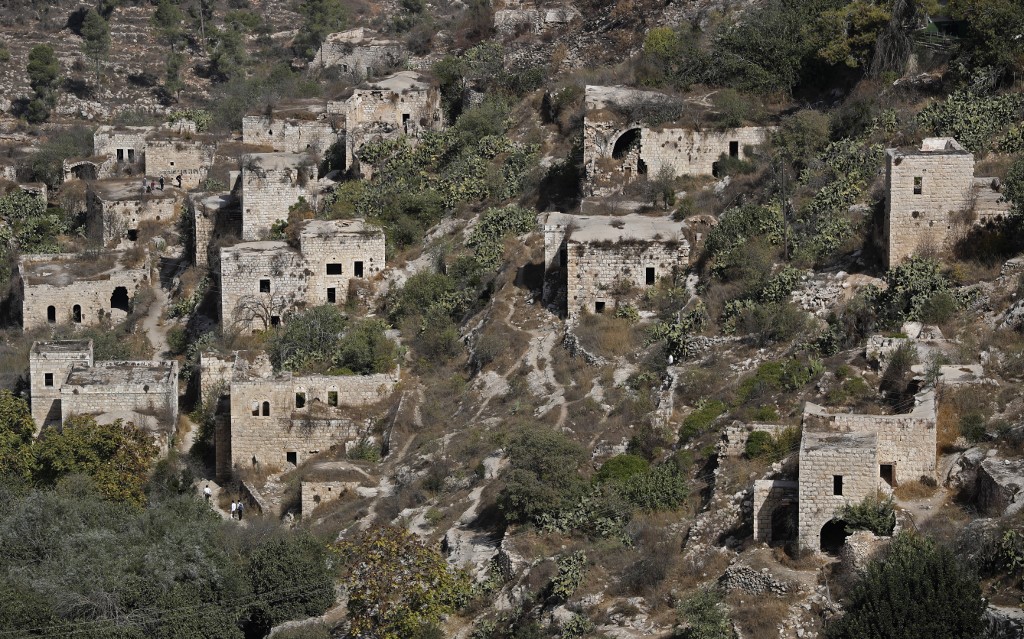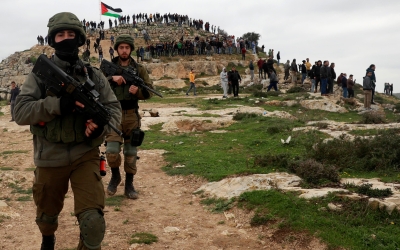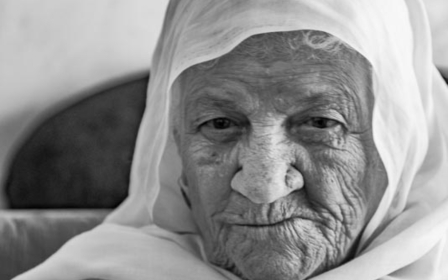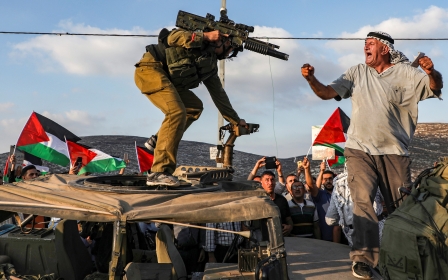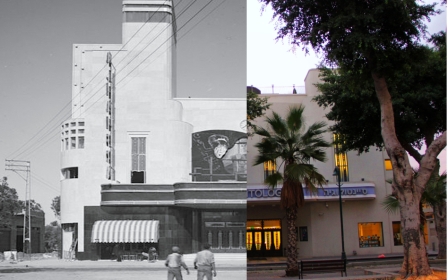Will this new BBC drama do justice to the Nakba?
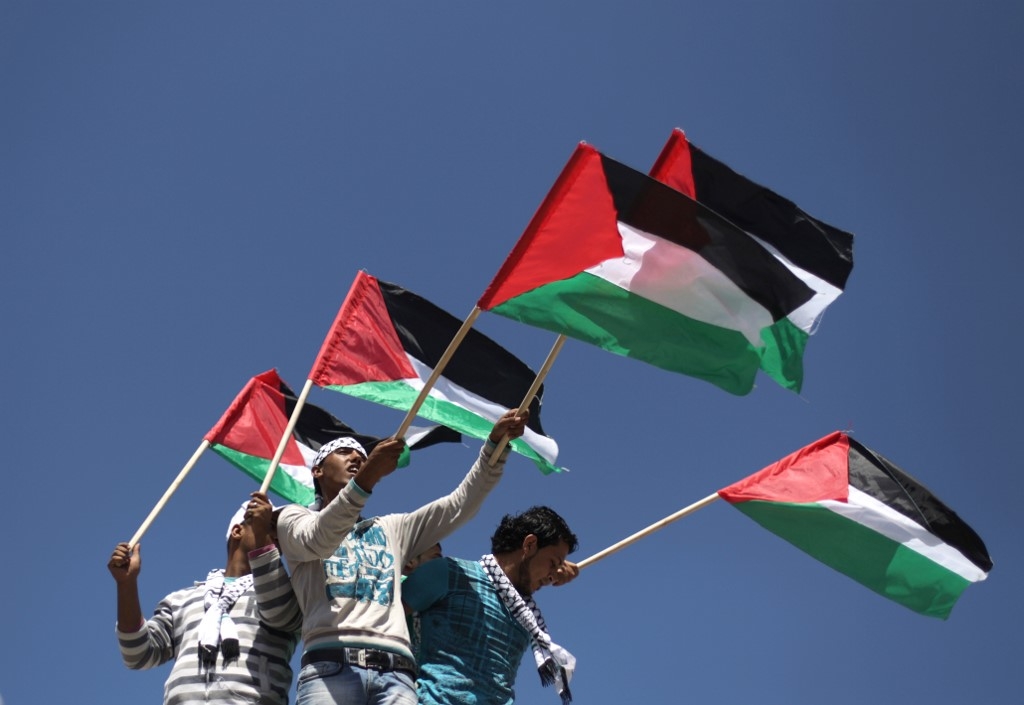
While Palestinian directors have long done an excellent job in representing their people’s struggle through film, recent high-profile dramatisations of the Palestinian-Israeli conflict produced in the West have not reached the same standards.
Netflix’s Fauda, for example, has been accused of being an extended exercise in pro-Israel propaganda, its portrayals of Palestinians conforming to every racist, anti-Arab cliche in the Orientalist book. Arguably, we may have to go back nearly a decade to Peter Kosminsky’s controversial but critically acclaimed miniseries The Promise to find a drama that did not dehumanise Palestinians.
Until, perhaps, now: the BBC, which has aroused the ire of both supporters of Israel and supporters of Palestine for its coverage of the conflict, is airing a new drama set in Palestine.
A promising start
Its new dramatic retelling of the early years of the struggle between Zionist settlers and Arabs leading up to the Nakba, or ethnic cleansing of Palestine, in 1948, Miriam and Youssef is not a headline-grabbing television series but a radio drama, released without much fanfare by the BBC World Service.
New MEE newsletter: Jerusalem Dispatch
Sign up to get the latest insights and analysis on Israel-Palestine, alongside Turkey Unpacked and other MEE newsletters
Initial impressions of Miriam and Youssef are not all promising. While the main Jewish character is played by a British-Israeli actor, and several Arab- and Iranian-origin actors play the Palestinian parts, it is unclear whether there are any Palestinian-origin actors in leading roles.
The Nakba was not merely a byproduct of Israel's establishment; for Palestinians it was, and is … inseparable from Israel's creation
Described by the BBC as “a 10-part drama about the founding of Israel”, the author of Miriam and Youssef, British playwright Steve Waters - who in his youth spent time on a kibbutz in Israel - said in an interview with the Times of Israel that he aimed to convey the intricacies of “an astonishingly undertold story”. The article described the radio drama as “balanced”.
But there was no balance in 1948 between Zionist settlers, armed and trained by the British, and the 750,000 Palestinian refugees expelled from their ancestral lands.
There is no balance today between the two million Palestinians in the tiny Gaza Strip, which lacks clean water and adequate healthcare, and the Israeli farms just metres away, with all the water and resources they require. Any attempt to find balance between occupier and occupied is doomed to failure.
'This place of exile'
Yet, based on the two episodes of Miriam and Youssef released when this article was written, there are cautious grounds for optimism. The drama spans the three decades between the start of the British occupation of Palestine and the Nakba and foundation of the state of Israel in 1948.
During this time, as Israeli historian Tom Segev has stated in One Palestine, Complete, “British actions considerably favoured the Zionist enterprise”, and a country with an overwhelming Arab majority and well-established but small Jewish minority was finally mostly emptied of its Arab population.
The first episode begins with the voice of the Palestinian Youssef: “How did we get to this place of exile, child? To lose our land in three quick decades?” That the drama’s first words belong to a Palestinian character is welcome. The Nakba was not merely a byproduct of Israel’s establishment; for Palestinians it was, and is - for it is ongoing - inseparable from Israel’s creation, an event that turned their lives upside down.
When we learn that Youssef’s village is Deir Yassin, we know how this series will end for his character. As historian Ilan Pappe writes in The Ethnic Cleansing of Palestine, Deir Yassin was “a pastoral and cordial village that had reached a non-aggression pact with the Hagana [the main Zionist militia] in Jerusalem, but was doomed to be wiped out because it was in the areas designated … to be cleansed”.
More than 100 villagers were killed on 9 April 1948, the survivors finally making their way to refugee camps far from their homes, which were destroyed in the new state of Israel.
Destroyed villages
We also hear the names of other villages west of Jerusalem - Ein Karem, al-Qastal, Lifta - that were among the 531 Palestinian villages and 11 urban neighbourhoods depopulated by Zionist forces in 1948. To hear the names of these destroyed villages broadcasted by the BBC is a victory, even if a small one, for historical accuracy and Palestinian memory.
It may prove significant that Waters has cited Palestinian historian Walid Khalidi, who chronicled Palestine’s destroyed villages in All That Remains, as one of his sources for the drama.
We know, too, how the series will end for Miriam, the Jewish character. When the dust has settled, she and her descendants will have homes in a state to call their own.
Miriam and her mother arrive in Palestine from Poland, fleeing antisemitic persecution. They do not arrive as convinced Zionists; on the ship to Palestine, an arrogant official from the Jewish Agency instructs them to stop speaking Yiddish - “a slavish speech” - and to speak only Hebrew.
In the Zionist movement’s quest to build a new Jewish society, centuries of diaspora tradition were suppressed. During these years, many Jewish immigrants, unable to find a place for themselves in the Zionist movement’s plans for Palestine, returned to Europe, many to suffer the horrors of the 1930s and 1940s.
The level of historical detail in Miriam and Youssef is impressive. The early episodes portray accurately that the conflict in Palestine was never one between religions, or a “clash of civilisations”, but one over land.
Orientalist cliches
Yet, there are also signs of tired Orientalist cliches in the series. Upon hearing of the 1917 Balfour Declaration, Youssef’s father states: “Let the Jews come. If the British are here, everything will be fine.” Palestinians are presented as naive, accepting of occupation and without consciousness of the dangers posed to their land by British policies.
For now, Miriam and Youssef is worth listening to, if only to find out how the BBC will face up to the tragedy and horror of the Nakba
While Arab Palestinians had happily lived alongside the Palestinian Jewish community for centuries, they were keenly aware of the threat of their dispossession caused by Zionist aims; as early as the 1880s, villagers organised to protest against their expulsion from lands purchased by Zionist organisations. This historical context is lacking from the drama.
Meanwhile, the Zionist immigrants in Miriam and Youssef are presented with a fully fledged nationalist consciousness, singing “Hatikvah”, which would become Israel’s national anthem. It is a simplistic picture that falls short of the historical reality.
It is too early to tell whether the new BBC series, which also features historical figures such as the British-appointed Grand Mufti Amin al-Husseini and the Zionist leader and chief architect of Palestine’s ethnic cleansing David Ben-Gurion, will go the way of other dramatisations that whitewash Israel’s acts, or offer something different. For now, Miriam and Youssef is worth listening to, if only to find out how the BBC will face up to the tragedy and horror of the Nakba.
The views expressed in this article belong to the author and do not necessarily reflect the editorial policy of Middle East Eye.
Middle East Eye delivers independent and unrivalled coverage and analysis of the Middle East, North Africa and beyond. To learn more about republishing this content and the associated fees, please fill out this form. More about MEE can be found here.



